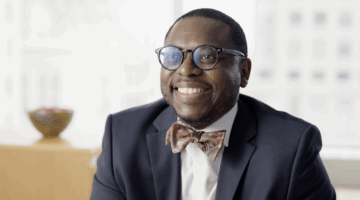
I’m going to offer some advice to liberals that, at first blush, may grate but you need to check out Reason. The libertarian blog features a piece by Ilya Somin that slaps back at the idea that birthright citizenship as extended under the Fourteenth Amendment can be undone by executive order. Which isn’t some wild, far-left theory — indeed, conservative darling Judge Jame Ho wrote that birthright citizenship can only be undone by constitutional amendment (of course, that was before birthright citizenship became the hobby horse of the Trump administration and Ho cravenly changed his tune on that one). Donald Trump issued just such an EO on his first day back in office, and his administration is now dealing with multiple pieces of litigation as a result.
In furtherance of this Trump administration policy, law professors Randy Barnett and Ilan Wurman took to the pages of the New York Times Op Ed. column to lend the academic credibility of their positions to the Trumpian power grab. Barnett and Wurman rely primarily on an “allegiance-for-protection” theory that predicates citizenship on a trade of one for the other they trace to an 1862 opinion by Attorney General Edward Bates. Yes, history buffs, you’ll note the date of that opinion limiting birthright citizenship to those who have traded allegiance for protection is BEFORE the passage of the Fourteenth Amendment (that, of course, being the amendment that created the birthright citizenship right). Which seems like a pretty freakin’ big red flag. And Somin further illustrates how dumb it is to use this theory to interpret the Fourteenth Amendment:

4 Ways Your Firm Can Build Economic Resilience
It’s the key to long-term success in an uncertain business climate.
There are several flaws in Barnett and Wurman’s “allegiance-for-protection” theory. The biggest is that, if consistently applied, it would undermine the central purpose the Citizenship Clause: extending citizenship to recently freed slaves and their descendants. Slaves born in the United States (and their parents, who were also usually slaves) obviously weren’t part of any social compact under which they traded allegiance for protection. Far from protecting them, state and federal governments facilitated their brutal oppression at the hands of their masters.
This situation changed, to an extent, with the abolition of slavery through the Thirteenth Amendment. But the “subject to the jurisdiction” language of the Citizenship Clause refers to people subject to that jurisdiction at the time they were born. For example, the child of a foreign diplomat doesn’t get birthright citizenship if her parents later lose their diplomatic immunity. If being subject to US jurisdiction requires a compact trading allegiance for protection, former slaves obviously didn’t qualify. Thus, the Barnett-Wurman theory would defeat the central purpose of the Citizenship Clause. That alone is reason to reject it.
Really though, the Barnett/Wurman piece is a bit of a feat as it’s brought together legal scholars of all stripes to condemn it. Like conservative professor Michael Ramsey, who has written extensively about birthright citizenship, who says (pithily, imho) that the Bates opinion that the Barnett/Wurman theory is based upon is of “only marginal relevance” to the analysis of originalism and the Fourteenth Amendment. Oh, and, Barnett/Wurman misread Bates.
A more liberal law professor, Jed Shugerman, also has a lot to say about the Barnett/Wurman piece. He dug into the primary source in the article (the Bates opinion) and found Bates concluded in favor of birthright citizenship, “The most important point is that Bates did not propose anything like an allegiance theory for granting citizenship, and he actually endorsed the birthright basis – explicitly, and citing a half-dozen sources for the rule.”

How The Law Office Of Stephen L. Thomas Jr. Reclaimed Valuable Hours And Strengthened Client Care With 8am
Founded in 2017, the Baltimore-based Law Office of Stephen L. Thomas Jr. unified case management, communication, and payments with 8am—saving 10–20 hours a week for clients, trials, and growth.
Now you might think that this is an awful lot of attention paid to this 1862 Bates opinion in the rebuttal of the Barnett/Wurman piece — but that’s the thing, that’s the primary historical source in the article. Oh, and they also cite Blackstone’s Commentaries in support of their position. But Shugerman really nails them on this source — one of the “half-dozen sources” Bates cites in support of the idea of birthright citizenship IS BLACKSTONE.
In the last few years, Blackstone has been cited by both sides of this debate. Barnett and Wurman claim Blackstone here for their allegiance-for-protection theory. But their own American source from the mid-19th century contradicts their use of Blackstone. Not only did Bates endorse birthright citizenship, he also told us that he considered Blackstone an authority for that position, too. It is more important in an originalist debate to understand how Americans of the 1860s understood Blackstone, and it turns out that Bates is at least a data point that Americans thought it was clear that Blackstone supported birthright citizenship. But Barnett and Wurman do not tell the reader that Bates not only rejected their theory, he also rejected their interpretation of Blackstone.
LOLZ.
Barnett has indicated on social media that he has MOAR! evidence to support his point, but, I’ll leave it (again) to Shugerman to state the obvious.
None of this is great for the academic credibility of Barnett and Wurman. But it could easily result in an opportunity in Trumpland — they need folks willing to go the extra mile to make their harebrained legal theories stick.
 Kathryn Rubino is a Senior Editor at Above the Law, host of The Jabot podcast, and co-host of Thinking Like A Lawyer. AtL tipsters are the best, so please connect with her. Feel free to email her with any tips, questions, or comments and follow her on Twitter @Kathryn1 or Mastodon @[email protected].
Kathryn Rubino is a Senior Editor at Above the Law, host of The Jabot podcast, and co-host of Thinking Like A Lawyer. AtL tipsters are the best, so please connect with her. Feel free to email her with any tips, questions, or comments and follow her on Twitter @Kathryn1 or Mastodon @[email protected].